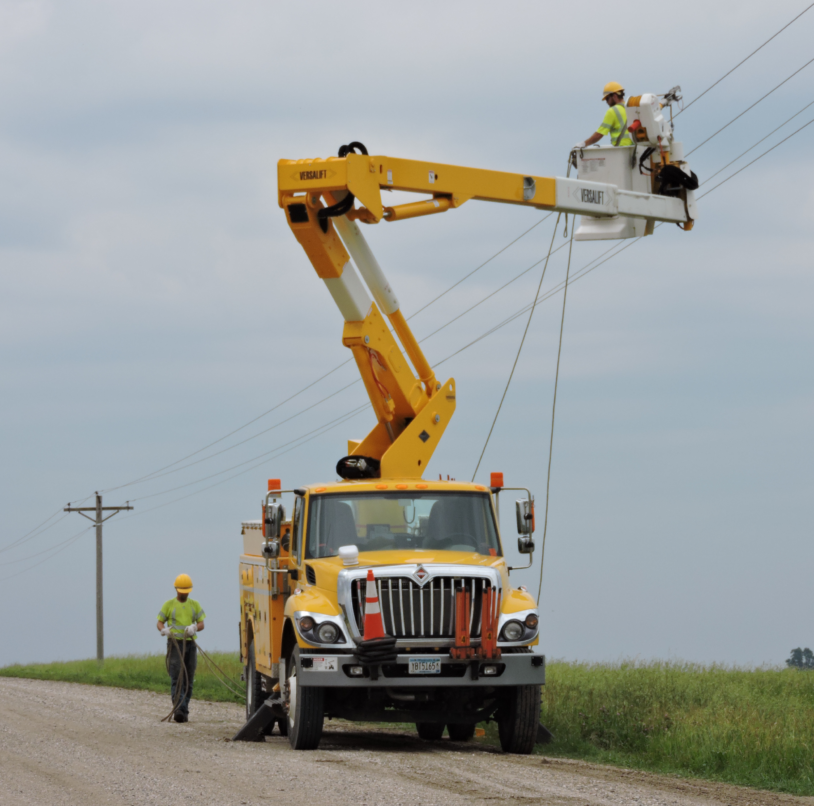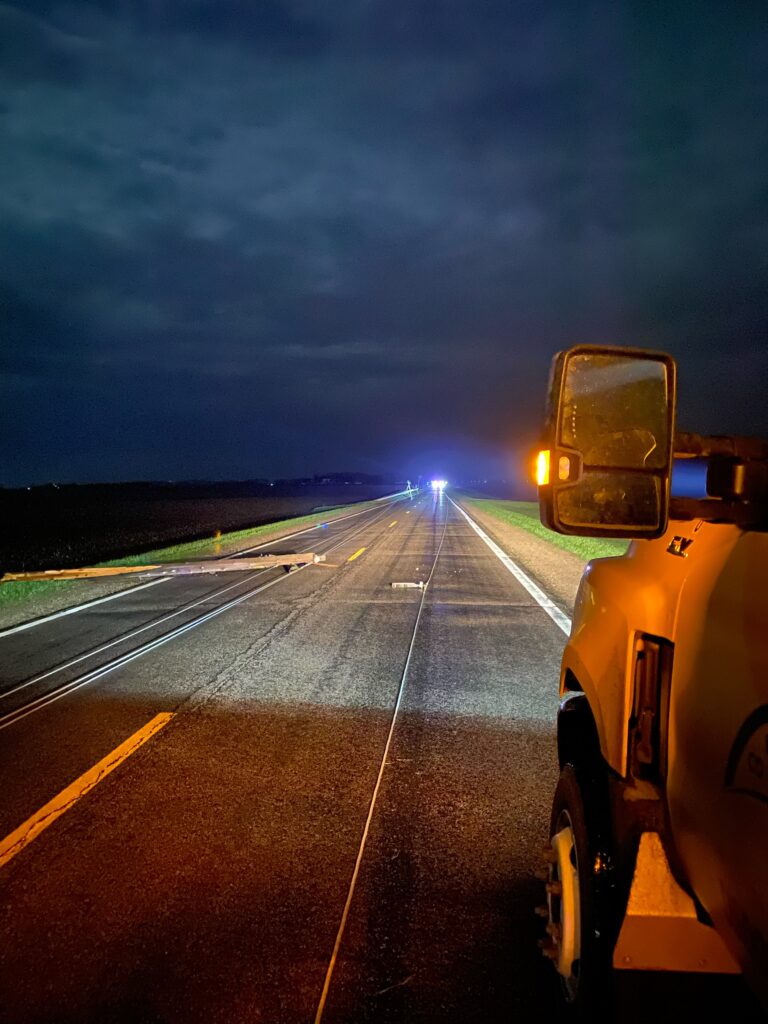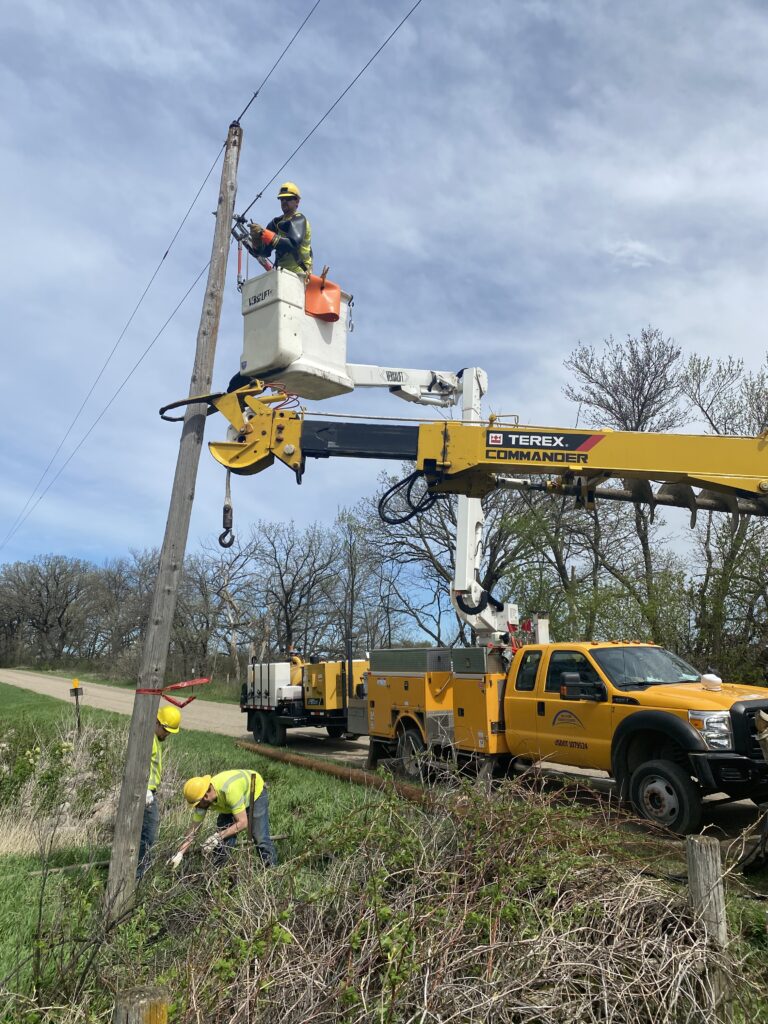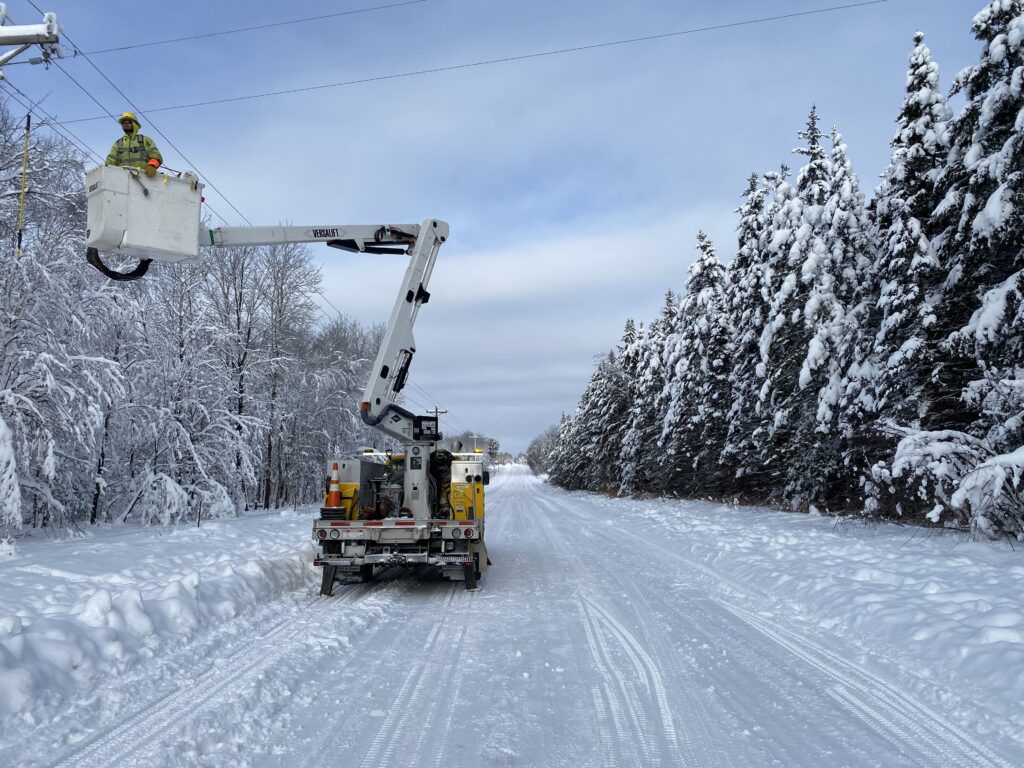
Powers Out? We are Here to Help!
Monthly Outage Summary
There were 61 outages affecting 78 members. The longest outage for January was for approximately 3 hours impacting one member, due to a primary dig due to a locate being off. There was a variety of other outages for the month.
*The average restoral time in December was 49 minutes per customer affected by an outage.
Did you know that SmartHub can send outage alerts for your service?
2025 Outage Summary
| January -61 outages, 78 members, 49 avg. minutes per customer -Longest outage was 2 hours-54 minutes (involving 1 member) | February |
| March – | April – |
| May – | June – |
| July – | August – |
| September – | October – |
| November – | December – |
What’s causing these outage events (Year to Date):
- Planned: 71.79%
- Maintenance: 8.97%
- Weather: 1.28%
- Animals: %
- Public: 3.85%
- Unknown: %
- Equipment: %
- Other: 14.10%



Most outages affect only one or two members.
Most outages affect only one or two members. They are frequently caused by small animals, trees in the line, equipment failure, or motor vehicle/machinery accidents. Larger outages affecting hundreds of members at a time are usually caused by transmission outages, storms, equipment failure to substation equipment, or accidents. Restoration time on weekends and evening outages, when line crews are called out from home, usually takes a little longer to get back on than outages when crews are already out working on the project.
For updates on large outages, follow our Facebook page
McLeod Cooperative Power Association.
We will do our best to update this page as we are notified by our line crew in the field.
To report a power outage or emergency situation:
Call the McLeod Co-op Power at 1.800.927.5685, anytime 24 hours a day, 365 days a year.
- Check the fuses/breakers in your home or main breaker on the pole, to ensure outage is not caused by equipment or fuse failure on your side of the meter.
- Call your neighbors. Ask if their power is also off and ask if they have reported it yet. Please do not take for granted that the outage has been reported.
- Call McLeod Cooperative Power to report your outage. Be prepared to give your name, address, and telephone number for the account without power.
Be Prepared – Outages Will Happen!
How prepared are you to be without electricity for an extended period of time? Could your family be self-sufficient if the power was out for a week?
Planning ahead can make a huge difference. You do not have to complete survival training; just some critical supplies, and following some important guidelines.
Critical supplies to have at home:
- At least one telephone that does not require electricity to operate or recharge.
- Bottled water (at least 3 gallons per person).
- Flashlights and extra batteries.
- Canned food and a manual can opener.
- First aid kit, prescription medications, candles, matches, and a portable radio.
- Consider investing in a generator.
- Listen to weather updates for freezing rain or severe blizzard conditions.
Want to know the process of restoring your power?
Need a backup generator?
Check out our backup generator option to help you stay out of the dark.
